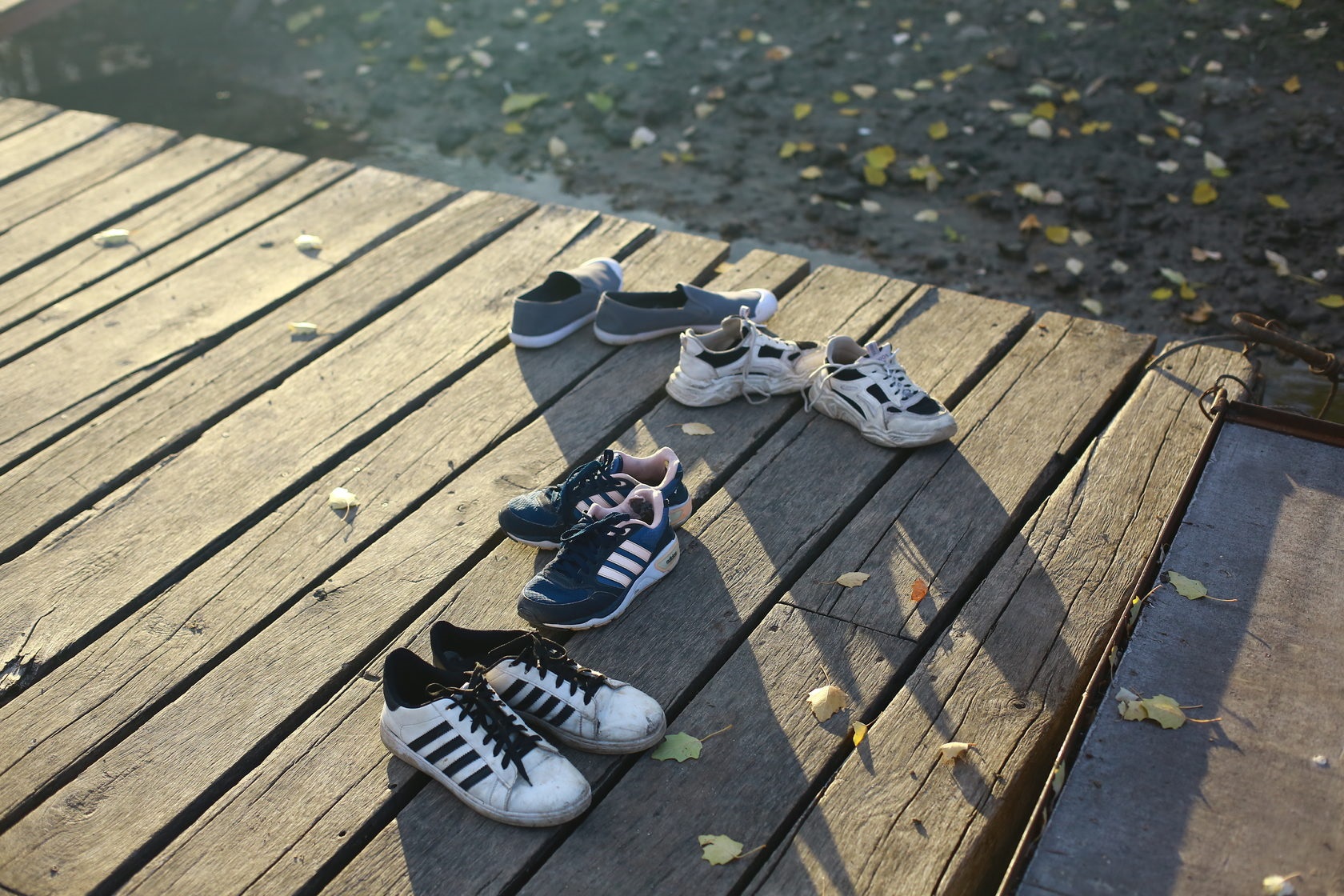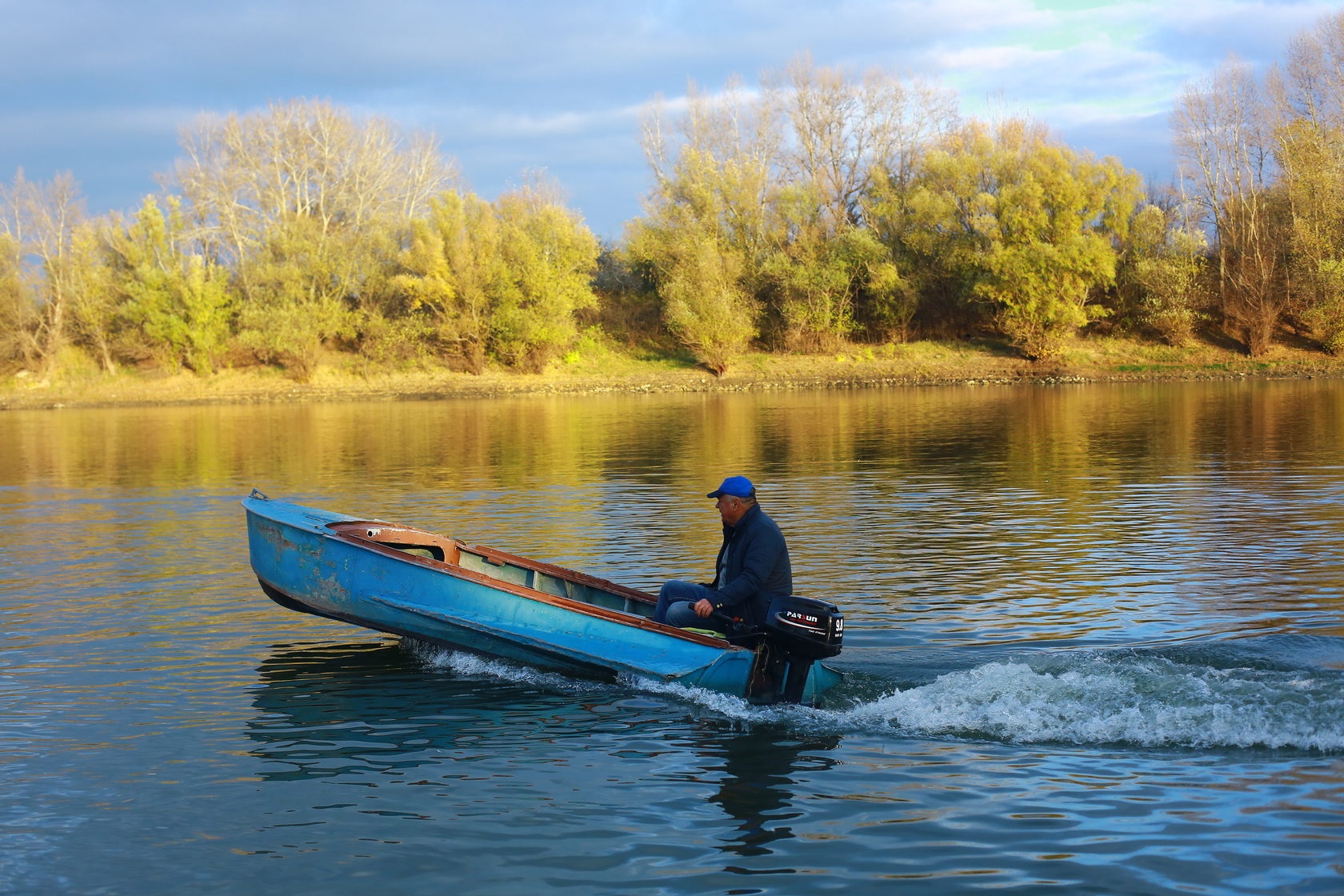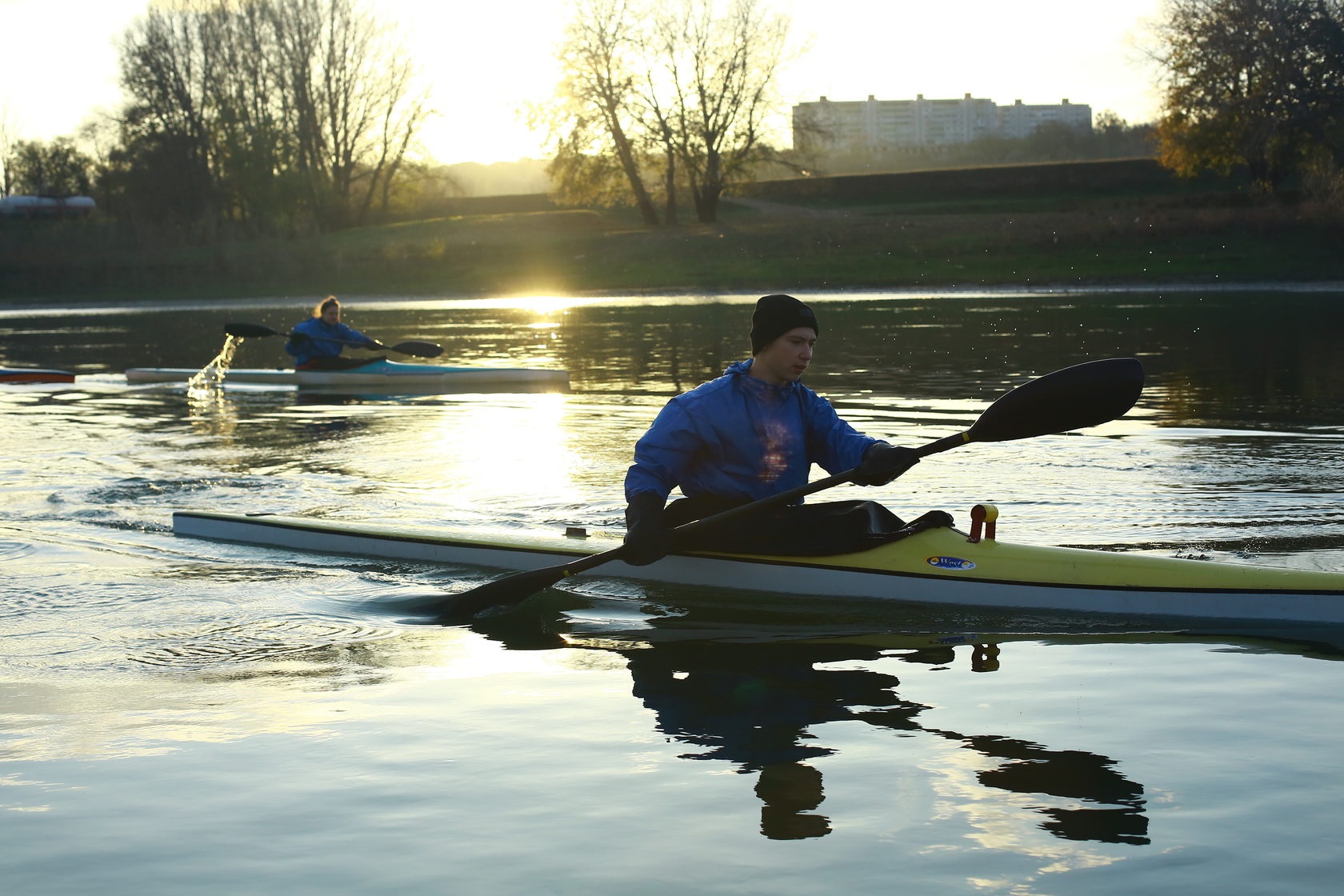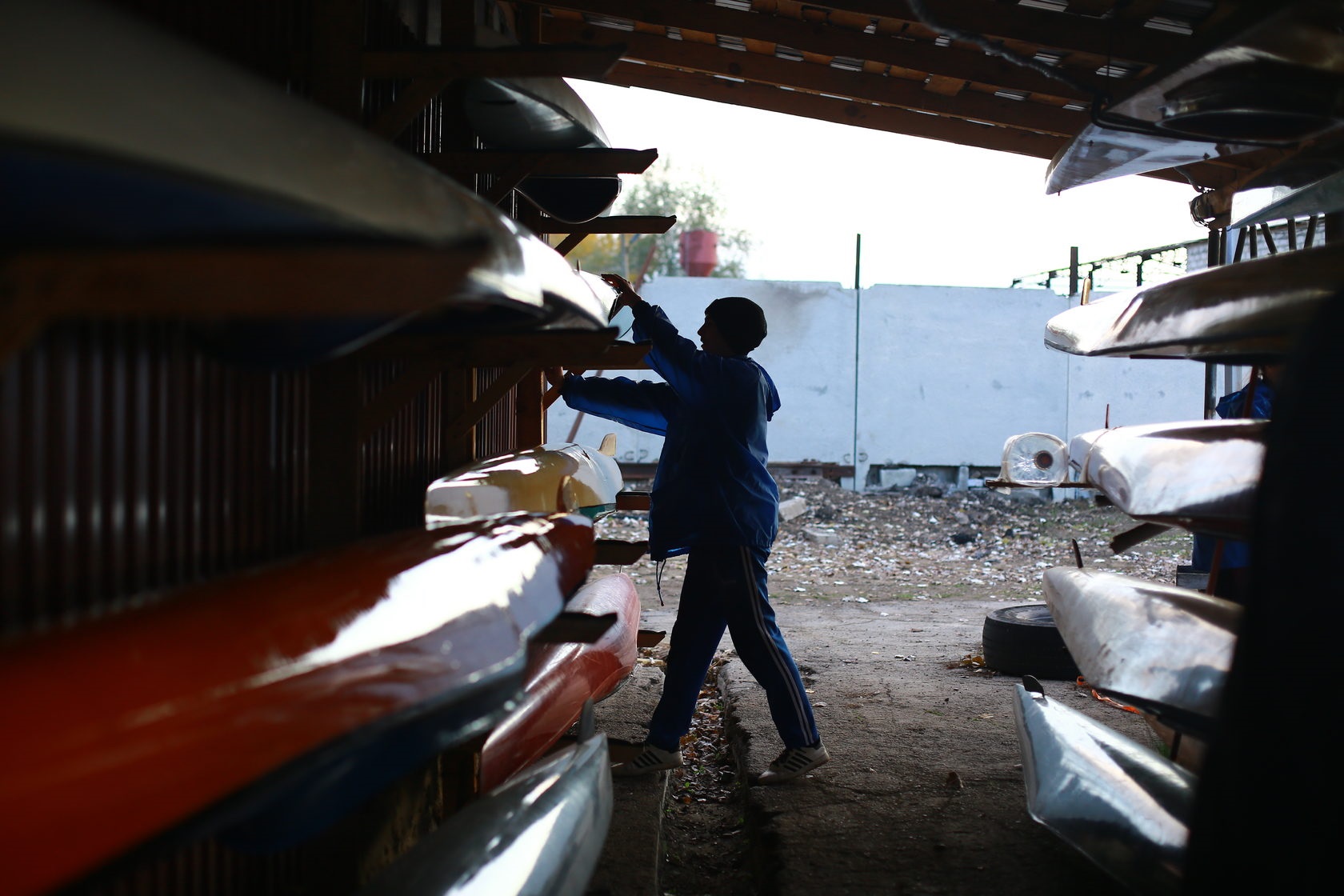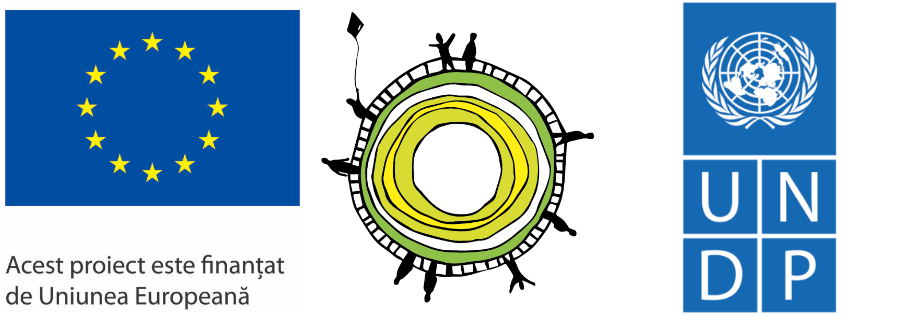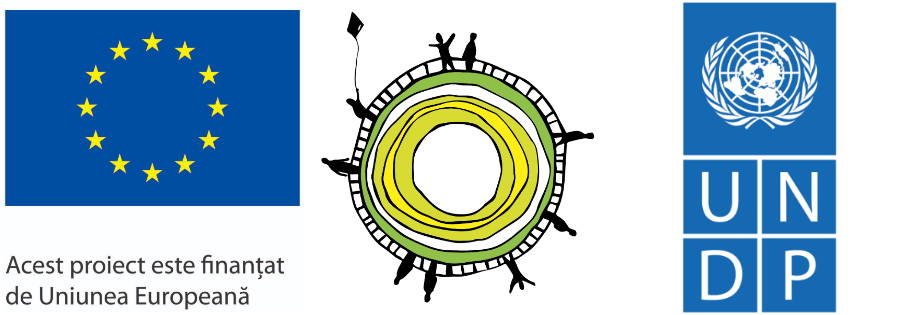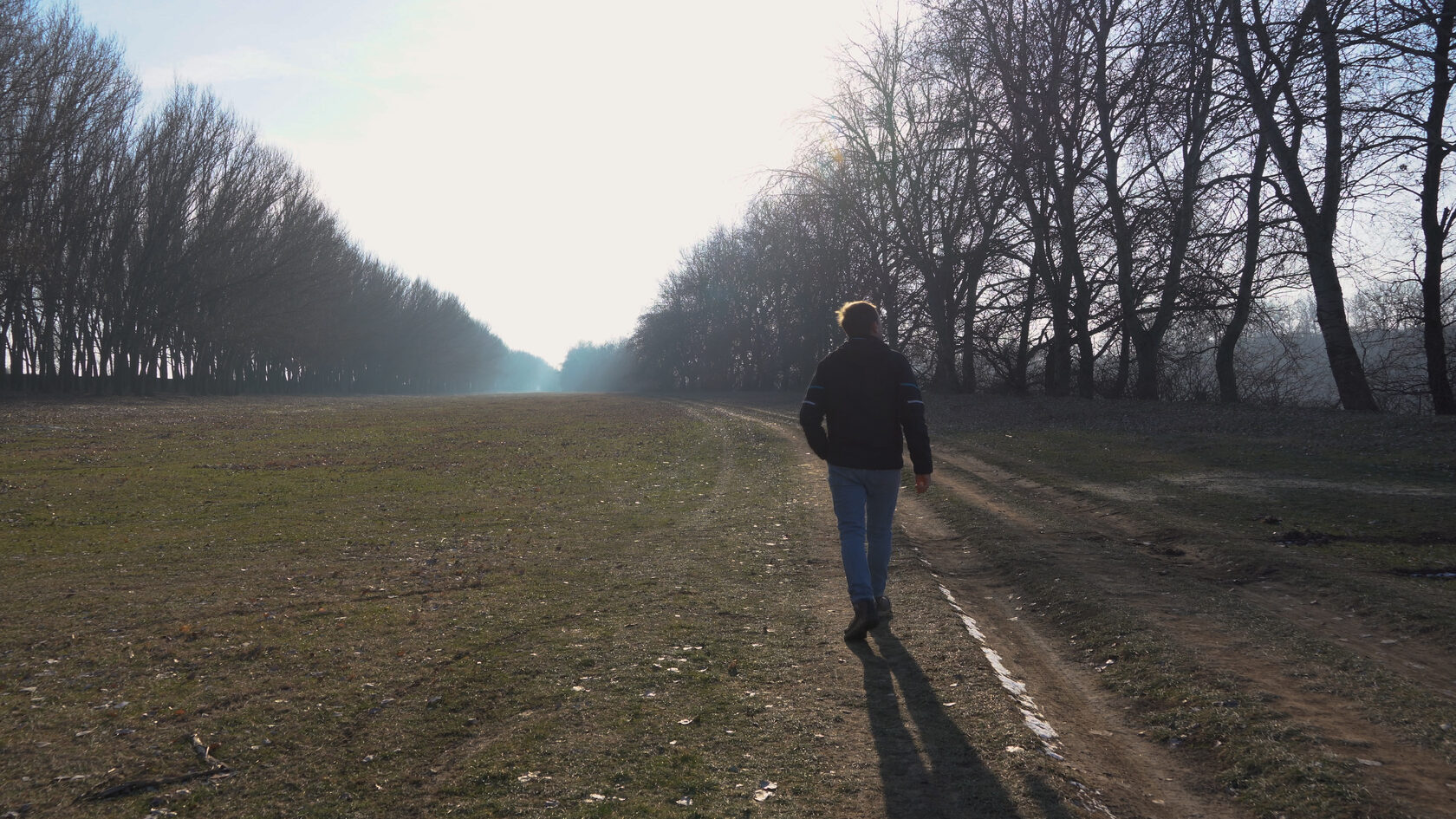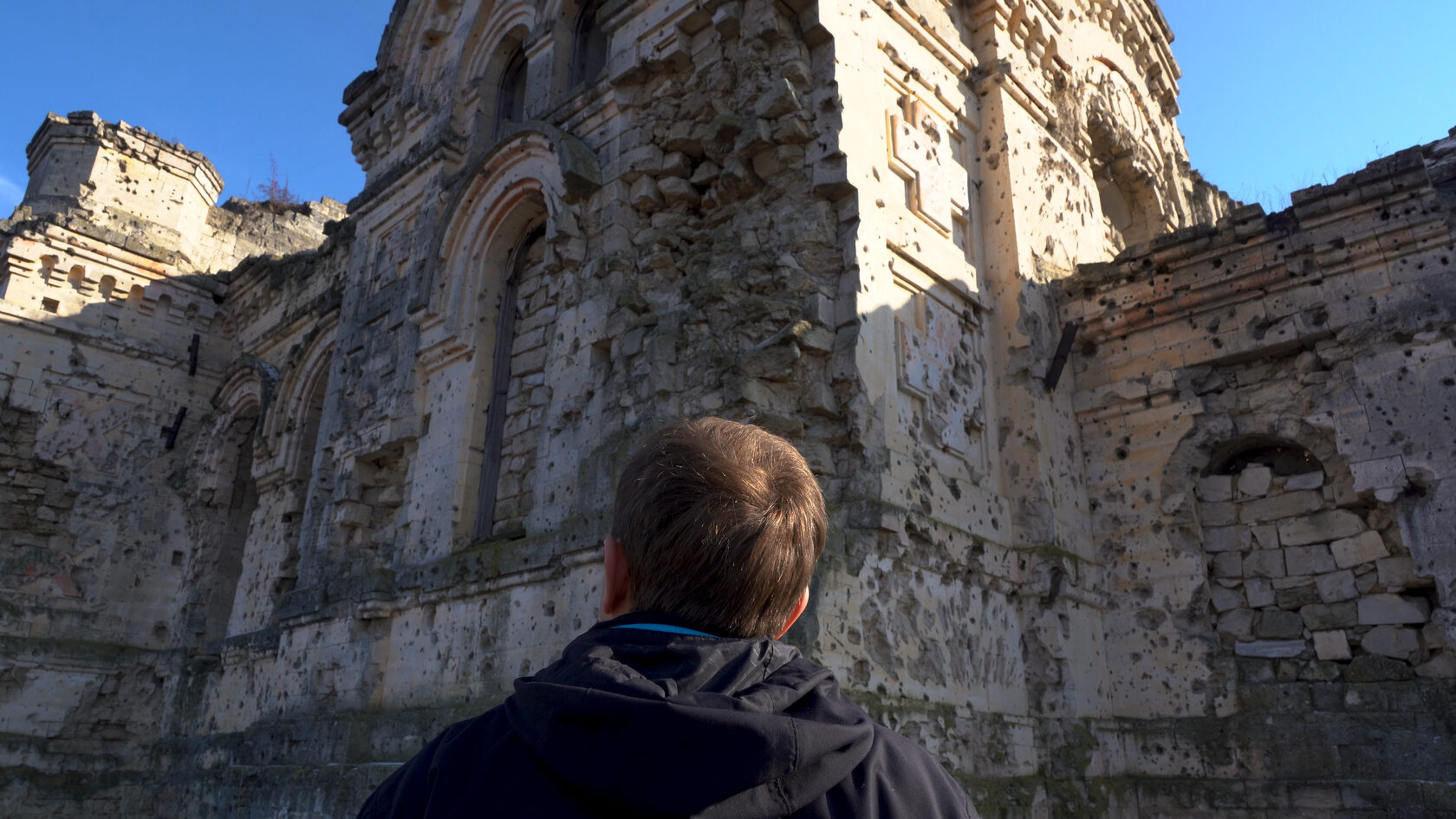Culture
Interview with the Chief master of National Opera and Ballet Theater “Maria Bieșu” – Andriy Yurkevych

Fall – time of the Festival of Maria Bieșu
September is an important season for fans of the opera of Moldova when Maria Bieșu’s Festival brings together the famous performers, conductors, directors in Chisinau. This year the Festival has celebrated its 25-year Anniversary. In such round dates as points of intersection, the past connects to the present and tells about Maria Bieșu whom many people saw and heard, remember and love, but which already became classics and a legend for a new generation. At the Festival, Bieșu returns to us, tells about herself through creativity, parties in performances which have glorified her and have brought the global recognition. And we rejoice that in economically heavy time the state has managed to keep such cultural treasure what, certainly, is the Festival.
One can find two articles about Festival performances – the opera by Giuseppe Verdi “Macbeth” and the opera by Pyotr Ilyich Tchaikovsky “Evgeny Onegin” that were both conducted by Andriy Yurkevich, the Chief conductor of National Opera and Ballet Theater of Maria Bieșu have been published. It is the second meeting with the glorified Maestro on Moldova.org, the first has taken place in February 2013.
Maria Bieșu’s festival – what does it mean to you?
As the Chief conductor of Theater, I am also directly connected with the Festival, especially with the directorate of theater in terms of creation of strategy of the repertoire and musical quality of performances, the invitation of directors, conductors, soloists. Only our exclusive performances, five operas and two ballets have been presented in the poster of the Festival. The best that has been put on the Moldavian stage in recent years, has been selected for display. The main parts in all performances were performed by the soloists representing various countries. The festival has come to the end with a gala concert in a format of “an opera show”.
In spite of the fact that I am not Moldavian, but I have been living in Moldova for a long time and I consider it to be my country my now. And for me this is great happiness – to direct National Opera and Ballet Theater and to participate in the main musical Festival of the country, it is personal responsibility and at the same time great honor!
How do you remember Maria Bieșu?
There are a lot of soloists in the theater who stepped on the stage together with Maria Lukyanovna, went together with her on a tour. Mihail Munteanu, Vladimir Dragoș, Boris Materinko, Tatyana Busuioc and many other soloists who were partners on the stage, remember its wonderful, unusual, original, powerful and at the same time very juicy and soft voice, a surprising drama soprano!
Her voice is magic, strong, unique, still the rarest in terms of the beauty and boundless opportunities and is recognized at once! The Moldavian earth has given it heart, soul, love, force and an expression, and a unique voice timbre, and Maria Bieșu returned all these gifts to the audience.
Well, I remember Maria Lukyanovna about 5 years ago, at a New Year’s concert. She sat in a government box, and in the final soloists sang “O sole mio”, addressing her, sang as health that she has longer stayed with us and was glad to progress of Theater in which she has put so many forces, time, the life, in fact. I remember her as the spectator and the patroness of Theater which rejoices her name now.
How is the selection of performances and soloists on the Festival connected with Maria Bieșu?
Certainly, we tried to include performances of Maria Bieșu into the program, performances of her main repertoire which made her famous. As the audience could see, there were no performances for an easy soprano. A performance which opened the Festival – the opera by “Madama Baterfly” with which Maria Bieșu has traveled all around the whole world. We have invited Inna Los, the native of Moldova to a title part, she was our graduate, the schoolgirl of the People’s artist Mihail Munteanu. Having continued training abroad, Inna worked as the soloist in the Vienna opera and having moved to the USA, now actively gives concerts there, repeatedly performed part of Madama Butterfly. We have met her in Switzerland on statement of the opera “The Queen of Spades”. It is very symbolical that our compatriot and the graduate who has reached such musical tops opened the Anniversary Festival. Also in the opera by Pyotr Ilyich Tchaikovsky the title part of Evgeny Onegin was sung by Andrey Zhilikhovsky who studied in Moscow and who was helped by Maria Lukyanovna too, taking an active part in the first steps of training of the talented singer abroad. And now we met him as a star, I won’t be afraid of this word because Andrey sang a title part of Evgeny Onegin in the Bolshoi Theater and Theater in Nice, prepares for a debut at the Metropolitan Opera. A great honor to us – our students who have so perfectly approved themselves in the world.
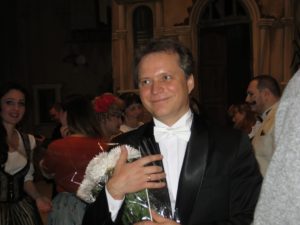 What new performance would you like to prepare for the next Festival?
What new performance would you like to prepare for the next Festival?
Likely, this question belongs to my creative credo more, to the fact that I like to conduct the Italian opera more. But, when forming the repertoire we proceed from existence of a creative power, singing forces, we can’t put performances with voices in which we have some deficiency. And, proceeding from what we have we show our best vocal forces in future premieres. It would be very much desired that in the repertoire there were not only veristsky and drama operas, but also a classical style by means of which it is possible “to grind” our “diamonds” – voices of soloists. And also it is very important to stage our theater and the opera by the Moldavian composers, we the only opera scene in Moldova!
Festival for the audience – always pleasant expectations and hopes. What were your expectations?
My expectations are meetings with the audience, scale of feelings on their faces, the delight and joyful rise brought by performances. My hopes – the actors singing, playing and dancing on our stage will feel interested, pressing need of our art and that there would be creative and spiritual opening during the performance!
We met you four years ago, it would be interesting to learn about your creative achievements during this time.
20 years – it would be long ago, and four is recent. Out of these four years that have passed from our last interview, the last three years I worked on the contract as the chief conductor “as Teatr Wielki – Opera Narodowa” (The Bolshoi Theater – the Polish national opera), constructed on Theater Square in 1825 — 1833 in Warsaw. The double name is connected with the fact that in the years of World War II the building of theater has been destroyed: after restoration in 1965 it has opened under a new name.
In this Theater I have made many interesting performances, including cult performance of the opera “Terrible yard” (The mysterious lock; Polish Straszny dwór) – the opera written in 1861-1864 by composer Stanislav Moniuszko (1819-1872), ancestor of the Polish musical culture and national opera. (The main auditorium of Theater bears his name). The premiere was held on September 28, 1865 under control of the composer. In 2015 the 50th anniversary of the Warsaw opera in the present building was performed, the best place for a premiere! And this performance has appeared to be the 1500th anniversary performance as well! I am very glad that I was lucky to conduct it.
Also, there were many other premieres: “Maria Stuart” Gaetano Donizetti (1797-1848), “The Turk in Italy” and “William Tell ” Gioachino Rossini (1792-1868). The last one, is staged extremely seldom because a large number of soloists are involved in it, and special voices are required. This opera is revived now, it is returned to the repertoire of different theaters. If opera is performed without contraction, it will last more than 5 hours! I am proud of the fact that I managed to stage at least once in life such opera and to conduct it with great pleasure.
Also, I continue cooperation with the Vienna opera, with the Zurich Theater, with theaters in Bologna, Genoa, Antwerp. In one year I will get acquainted with the Tokyo National opera.
What about your creative plans in our Theater?
There will be new performances, interesting concerts – it is important! We will use as much as possible of our potential and creative power of our local and invited actors. The main thing is that everything that we do, has turned out to be a high quality, high level and conformed to the international standards.
Of course, a question about your family.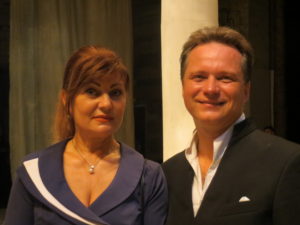
Thanks for the question! My wife Tatyana and I are fine, our daughter Vlasta-Nikoletta is growing and has learned how to stand eternally absent father conductor, there will be an issue of choice of profession soon. I don’t know whether she will continue the musical tradition of our family, we know that our work, especially now, isn’t always appreciated. Behind each part, behind each debut both in the opera, and in the ballet there are years and years of wearisome work! Work of actors isn’t always estimated adequately…
Would we like such future for our child that we have today? I don’t know. But we sensitively listen to the child, we try to understand what really is pleasant to her and her soul.
Will you Support Vlasta-Nikoletta if she chooses your way?
If her genes “are infected” with music, then our opinion will be not so important, the destiny will be already foreordained. The most important thing that conditions for cultural development have been created in our country and children can choose a profession of the musician and feel the support of the state!
We wish you further creative achievements and we are waiting for new remarkable premieres in Maria Bieșu’s Theater!
Author: Natalia Mozer
Culture
The man raising children on Nistru river

Culture
The village of the first astronomer in the Republic of Moldova

Culture
The prodigal son returns and turns his grandparents’ home in a tourist attraction on Nistru river

Reading Time: 7 minutesOn the road towards the school, a well-maintained rural house catches your eye, yellow stags painted on its blue terrace. Behind the house, Nistru river flows peacefully.
Petru Bondari, the owner of the house, comes out into the yard with a plastic bottle. He goes to the spring to bring some water for the tea. He wears a waterproof jacket and hiking boots. Hi walks slowly and looks around with his clear blue eyes, reminiscing about his childhood. He is now 34 years old, and the love for his home village and the passion in his voice makes you believe that everything is possible, wherever you decide to live.
The scrambled eggs
It’s 11 o’clock on a cold winter day. The wind sweeps the snowflakes and the village seems numb. Petru’s childhood is strongly connected to everything related to swimming in the Nistru river, to the cows, to grandma Ileana and the cold plăcinte she used to cook. The children of Pohrebea would run towards Nistru whenever they had the time. Petru remembers the tricks he used in order to have as much time for himself as possible. Once, his mother allowed him to go swimming with the boys only after he would bring her two buckets of horse manure for her to render the oven. “And because I couldn’t find enough manure, I filled the buckets with soil and I placed the manure on top. My mother was amazed that I came back so quickly, and I quickly ran away to the river,” he laughs with nostalgia.
The village of Pohrebea in Dubăsari rayon is inhabited by a few hundred people. It became famous following the “Hodina” festival in 2019. After this event, people became interested in the beautiful landscape of the Nistru river bank. Some even bought houses, which they transformed into guest houses.
When he reaches the spring, Petru bends over and fills the bottle with cold water running from a pipe. A stone wall is built around it, in order to protect it from the rocks falling from up the hill. Even now the locals come and take water from the spring in front of the school close to his grandmother’s house, where he used to come running during the recess and eat something warm and tasty. “The best plăcinte and găluște I had where cooked by grandma Ileana. She would often prepare some scrambled eggs in a hurry. They were so good, that many of my colleagues were dreaming about this dish.” He still remembers the way she was scrambling the eggs so masterfully. “When I was going into the kitchen and see the oil lamp lit, I would know immediately that it’s a Holy day. And it was then when my grandma would cook cold plăcinte, which were incredibly tasty,” recalls Petru about his grandmother, whom he lost when he was a child. Even now, he is still very connected to her. He only knows his grandpa from pictures – he went to war and never came back.
„I felt torn away from everything that makes up a home”
After the death of his grandma, the household became empty. Because it was a difficult period in their lives, his parents decided to sell his grandparents’ house. The new owners left abroad shortly, and grandma Ileana’s house was left unattended. “Every time I was passing by, I felt so much sadness…” Petru admits.
He grew up and went to study Law in Chișinău. At the university he understood that this field is not for him, so he started applying to different programs which offered him the opportunities to leave abroad. “There is this stereotype that if you want to have the life you desire, you must absolutely leave Moldova. I believed it too.” Thus, as a student, he went to Romania, Ukraine, Switzerland, Poland, Belgium, France and the US. In the meantime, he got married.
“Wherever I would end up, I always felt like being torn away from everything that makes up a home,” he admits. Four years ago, Petru returned to Pohrebea. “Nowhere in the world could I feel like home. Only in the village I was born and grew up.” But once he returned, he didn’t find his childhood friends here, ass they all live abroad. This didn’t discourage him. He knew that in Pohrebea he had a place where he can build his life and that he wouldn’t have to start everything from zero. Using his experience, he launched a small business organizing team buildings. The concept is that the activities would take place open air, on the Island of the Cows, the place where the local villagers would take their cows and leave them there from spring till autumn, and in the evening they would go there to milk them. “The cows have everything they need to be happy there, but it is also a very picturesque place,” he smiles, fixing his hair ruffled by the hat.
„La mâca Ileana” guest house
Although years have passed, Petru was still saddened when he would walk near the house where his grandma used to cook him scrambled eggs or the cold plăcinte specially prepared for celebrations. He had some savings and one year ago he contacted the owners of his grandmother’s house. He wanted to buy it no matter the cost. “At first, they told me like 20 times that they wouldn’t sell, then they wouldn’t even answer the phone. But after a while, maybe they thought that they can get rid of me if they ask for a price five times higher than the one they bought it with in the beginning,” he recalls. But in the summer of 2020, both parties signed the sales agreement. Since then, his grandparents’ house started to change to become a guest house. The idea was to open its doors wide to all the people who are in need of peace and quiet, dreamy scrambled eggs and cold plăcinte.
He repaired the house while preserving its authenticity: the roof covered with clay tiles, the whitewashed walls, the colorful ornaments on the outside walls and the old frames with family pictures. Also, he collected old objects in the village, which he arranged in the yard and on the wooden terrace. Thus, in the autumn of 2020, the guest house opened its doors. Here you can find accommodation, but also see how the corn is grinded at the old stone mill Petru took from aunt Dunea. She got it from her mother-in-law, but the original owner is still unknown.
Because the pandemic is still not a thing of the past, the business cannot really flourish, but Petru says that he’s not losing hope. “We have time to make improvements. Everything is new to us, but we adapt,” he says while sitting on the wooden terrace.
The old mill
In the alley there’s aunt Dunea, who is trying to calm down her nephew. The poor little guy was at the dentist earlier and his grandma tries to bribe him with the promise of a fresh colac (ring shaped-bread) and Coca-Cola, as a reward for the teeth he lost so bravely.
“Aunt Dunea, come in… Do you remember the mill you gave me?” asks Petru, while putting his arm over the woman’s shoulders. She is dressed in a black mantle and has a wool scarf over her head. “You want to have a museum here, right?” she jokes timidly. Aunt Dunea looks around till she sees the mill, and memories start coming back to her.
When she was young, her husband, “a strong fellow”, would pour two buckets of wheat and grind them in the mill. They were making flour for bread, plăcinte and cookies. The cold plăcinte were always the stars at every table. She would always share them with the entire neighborhood, with all her relatives. “I have relatives on both banks of Nistru river. When we gathered, the house was full. I went to a few weddings in Transnistria, and they would come to ours. They also make beautiful weddings, very beautiful, I have godchildren there. We call each other, we keep in touch,” she says.
When the people from both banks of Nistru river will visit the “La mâca Ileana” guest house, Petru will grind some corn and make a mămăligă. “We, as common people, don’t have this segregation that one is Moldovan, one is Romanian and the other is Ukrainian or Russian, if they are from Transnistrian region or not,” Petru explains, and aunt Dunea confirms, nodding her head.
The idea of a guest house came to Petru Bondari while also having in mind the revival of the village. From its hills you can see Nistru – a wonderful view attracting tourists. “If the village is visited by more tourists, the locals will have the opportunity to sell their products and stay in the village,” he says. This is why Petru wants to stay in Moldova and develop his business, because “Moldova has potential”.
Moreover, Petru tells us that in the last few years, many houses in Pohrebea were bought by “outsiders”. “Most of them want to transform their houses into vacation homes, where they can spend their weekends and holidays,” he explains.
Pohrebea is a village of legends: kurgans, objects from the Cucuteni-Trypillian civilization and the legend of “Saint Alexei” church are just some of them. In the future, Petru wants to collaborate with entrepreneurs from the left bank of Nistru river, because both sides wish for this to happen. “I had the opportunity on numerous occasions to talk to the people from the Transnistrian region. They told me they would be happy to do things that would improve the situation on their side. Undoubtedly, the desire is there. And when it’s strong enough, everything is possible,” Petru says, while looking at the alleys of the village where he was born, where he grew up and where he wishes to stay.
Author: Eugenia Ciurcă
Editor: Anastasia Condruc




